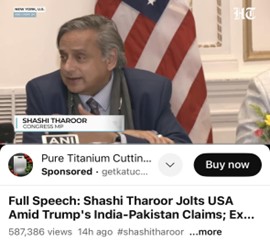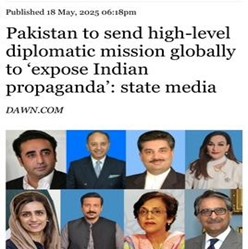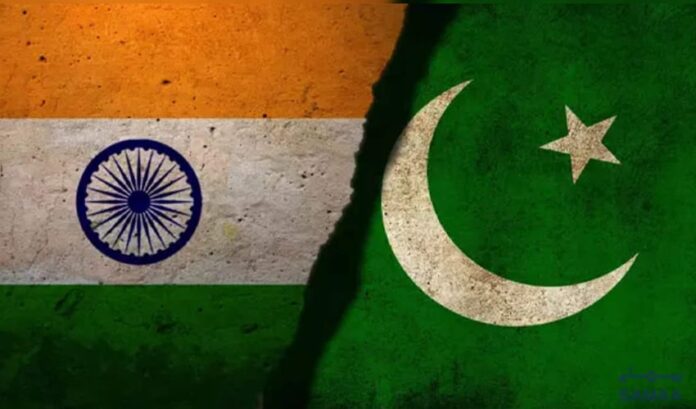Caught in a cycle of media theatrics and political posturing, India and Pakistan are projecting strength abroad while avoiding the hard choices needed at home. This op-ed unpacks how both nations are using diplomacy as a performance—exposing internal fragilities rather than resolving them.
The so-called “two-day war” yielded no strategic or territorial outcomes for either side. Yet both nations emerged claiming symbolic victories—crafted not on the battlefield, but through media spectacles. India and Pakistan have once again entangled themselves in a performative contest, not through sustained military engagement, but through a media-fueled struggle for global narrative dominance. This is a modern-day “Star Wars,” fought within the controlled environments of TV studios, social media feeds, influencers, and political commentators, including retired diplomats and military officials.
Syophantic and fawning political commentators have overtaken military generals and seasoned diplomats, offering dramatized dialogue with fervor to captivate domestic audiences.
India appeared to sideline its experienced and competent Minister of External Affairs, Mr. S. Jaishankar, in favor of the eloquent yet controversial Mr. Shashi Tharoor, who has engaged global stakeholders with impassioned rhetoric to counter Pakistani narratives. This has been an unusually desperate and curious reconfiguration of India’s diplomatic priorities.

Pakistan, reciprocating in kind, mobilized a select group of politicians, many of whom are perceived as being on a PR trip or a paid holiday, rather than engaging in any strategic diplomatic mission.

As emerging economies with vast potential and shared challenges, India and Pakistan would do well to reorient their energies from mutual disparagement to collaborative problem-solving. In the 21st century, true influence is measured not by how well one performs on camera, but by how responsibly one governs off-screen.
India’s maverick diplomat and undeniably elegant public intellectual, Shashi Tharoor, seemed to get carried away by his ambitions—driven by domestic pressures—to act as the country’s foreign spokesperson. He must realize that this hasty move may not serve the long-term interests of national political unity, nor his personal brand. In doing so, he appeared to assume the role of babysitting India’s most experienced foreign policy hand.
To each, a thought:
If both India and Pakistan are eager to challenge each other on international platforms, they should channel that energy into meaningful diplomacy and dialogue. This would not only win them greater respect globally, but also the admiration of their own people—through concrete steps toward resolving longstanding issues. These are their own problems, and no outsider will solve them.
India, as the larger and more powerful country, must demonstrate greater responsibility and take the lead. Pakistan, in turn, must reflect on its past and rise to meet the demands of the present. With little left to lose, Pakistan must act pragmatically, while India—having everything except sincerity—must act justly.
To both Mr. Shashi Tharoor and his counterpart Mr. Bilawal Zardari: If your governments are so impassioned about confrontation, it’s time to redirect that energy toward constructive diplomacy. Instead of becoming a spectacle for the world, come together, think wisely, and find a path to peaceful coexistence. Invest not in conflict, but in the wellbeing of the people you both represent.
And remember: every penny spent on confrontation is a penny stolen from the people who deserve it better.




